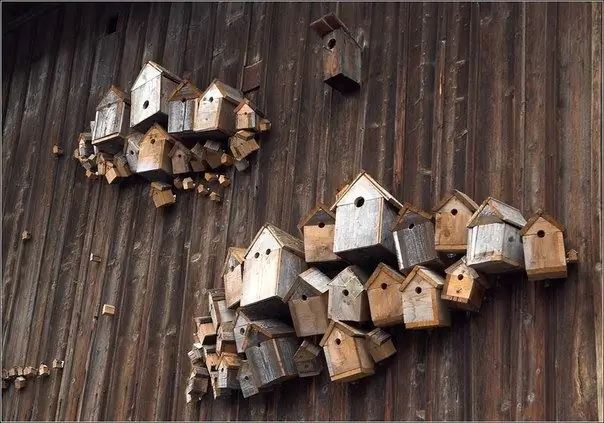- Author Nora Macey macey@family-relation.com.
- Public 2023-12-16 10:17.
- Last modified 2025-01-23 08:47.
The very meaning of the word "hostel" speaks of a joint, common living. But it can be difficult to immediately get used to conditions that are so different from home. If a person has lived his whole life in a separate house or apartment, he will have to make an effort to improve his life in the unusual environment of a hostel.

Student hostel
Many of those who have studied away from home have the experience of living in a student residence. Most remember him with pleasure, and this is understandable: in younger years it is easier to get used to the difficulties of everyday life, it is easier to come to terms with the fact that your personal space is regularly violated. And in such conditions this cannot be avoided. Often people who did not know each other before move into the room, and everyone has to make certain efforts to make life together, if not comfortable, then at least bearable.
To make the process of adaptation to student life faster and easier, it is better to immediately, having met new roommates, discuss with them issues related to household arrangement:
- where each of the tenants will sleep, store their belongings;
- who will clean the room and when;
- how they will eat: jointly buy food and cook or each one for himself, will the supplies brought from home to the “common pot” or remain in “individual use”;
- what exactly each of the neighbors can and wants to do to improve the room, etc.
The more detailed and detailed these topics are discussed, the less misunderstandings will arise in the future.
It is worth paying attention to the coordination of the study and rest regime, otherwise it will be difficult to avoid conflicts. It is good when students who study in the same group live in a room. But it also happens that neighbors study in different courses and even faculties. It is important that everyone has time to work out and relax without disturbing others, and this is also worth discussing.
Of course, the life of a student is not only learning, but also active communication. And the hostel is such a place where it is customary to visit neighbors easily, without a special invitation. If all the tenants of the room are not against this order - so be it. But still, if someone specifically invites guests, it's a good idea to warn your comrades in advance and ask if they have more important things to do (say, preparing for an exam).
Family hostel
But not only students have the opportunity to join the “joys of a common life”. Many families, not only young ones, experience difficulties with housing and are forced to be content with a room in a family hostel. Of course, life there differs from student life, first of all, in that each family occupies a separate room, in which there is an opportunity to equip a small world according to your taste, regardless of outsiders.
But here, too, there are limitations. Living in a hostel, you must still reckon with those who are nearby, behind the wall.
Observe silence from 11 pm to 9 am. Of course, this requirement is also relevant for those living in separate apartments, but in a hostel, as a rule, audibility is better. And if the TV turned on by the neighbors yells under your ear, you will not be able to go to sleep in another room.
Try to organize your life inside your personal space (room), you should not take it out to public places. Corridors, communal kitchens and other similar areas are not intended for your children to play, your guests' gatherings and family quarrels.
Do not deny small services to neighbors if it is not too burdensome for you. If a neighbor asks, you can borrow a tool, a stepladder, help out with a small amount (in exceptional cases). Good relationships with your dorm roommates will not hurt. it is still necessary to solve joint household issues of repair, arrangement, cleaning, etc.
Common areas
The rules for using such premises as a shared kitchen, shower, toilets and corridors are generally the same for both family and student dormitories:
- keep clean in common areas;
- do not use other people's furniture, household appliances, dishes without permission;
- do not disrupt the cleaning schedule for common areas, if established;
- do not use common areas for personal needs (for example, do not arrange a "reception" for your guests in the common kitchen or a playground for children in the corridor);
- try to use the toilet and shower strictly as intended and for the shortest possible time: perhaps someone is already waiting for their turn;
- about breakdowns and malfunctions of general household appliances, plumbing, etc. report to the dormitory supervisor or floor supervisor.
By showing respect for your neighbors, for their personal space and needs, you have the right to expect reciprocal respect from them.






